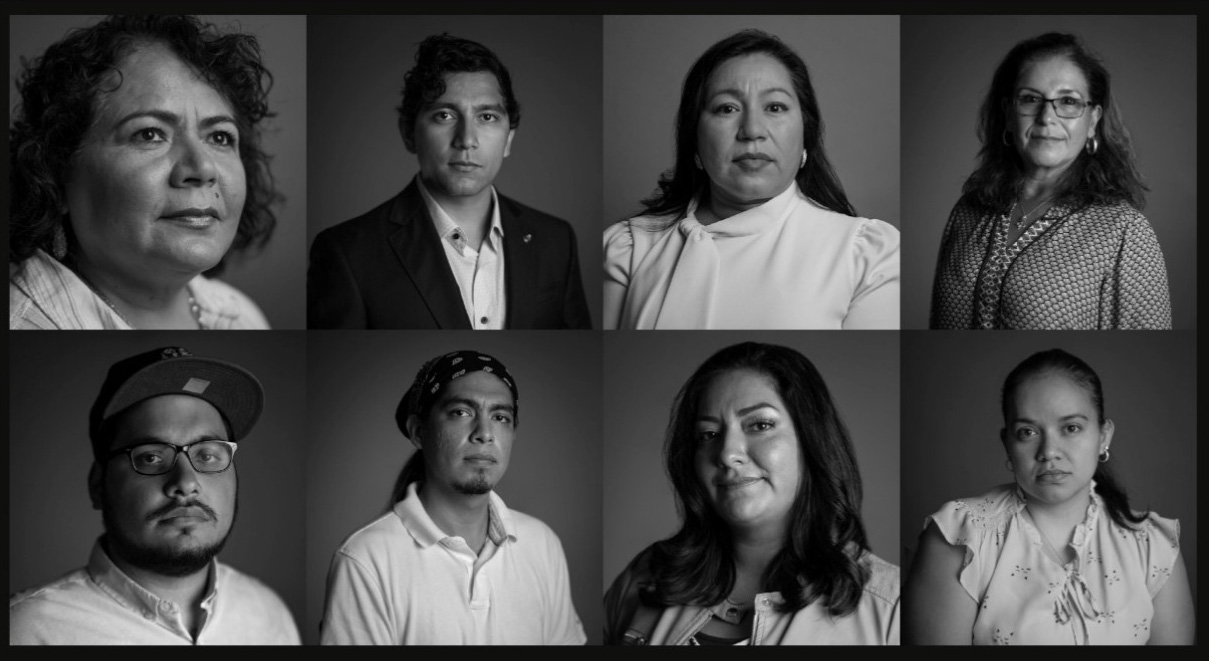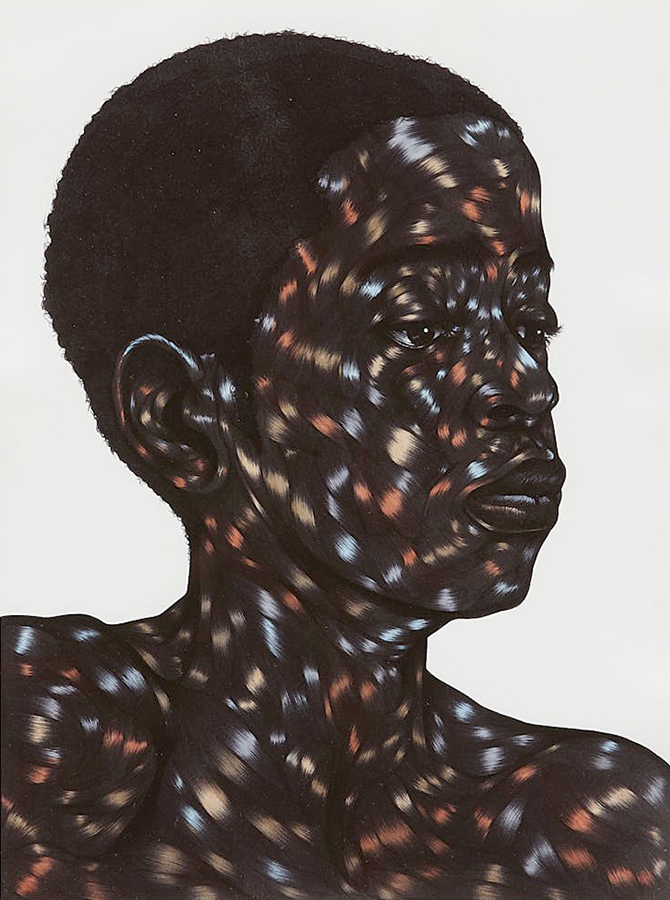Update: Jonathan Scott Holloway is provost of Northwestern University.
Jonathan Scott Holloway started out writing his book in the usual academic fashion. But the more he delved into his examination of modern African-American storytelling, the more he realized he had to tell his own story, and that of his family.
“The more I encountered stories about, for example, Langston Hughes getting kicked off the trolley car when he was 12, I thought, ‘Wait, that’s my uncle’s story in D.C.,’” Holloway said.
“Or if I read someone else’s accounting of what happened to them, usually with stories of racial trauma or racial humiliation, it’s like, ‘Wait a second. That happened to my parents in the early ’60s. Wait, that happened to my brother. Wait, that happened to me in New Haven in 1990.’”
The result is “Jim Crow Wisdom: Memory and Identity in Black America since 1940,” a book that combines memoir and family history with social science to look at the stories that African-Americans have told about themselves and to their children.
 Holloway is the chair of the African-American studies department at Yale University and the author of “Confronting the Veil: Abram Harris Jr., E. Franklin Frazier, and Ralph Bunche, 1919-1941.” He edited Ralph Bunche’s “A Brief and Tentative Analysis of Negro Leadership” and co-edited the anthology “Black Scholars on the Line: Race, Social Science, and American Thought in the 20th Century.”
Holloway is the chair of the African-American studies department at Yale University and the author of “Confronting the Veil: Abram Harris Jr., E. Franklin Frazier, and Ralph Bunche, 1919-1941.” He edited Ralph Bunche’s “A Brief and Tentative Analysis of Negro Leadership” and co-edited the anthology “Black Scholars on the Line: Race, Social Science, and American Thought in the 20th Century.”
He spoke with Faith & Leadership while at Duke for an appearance sponsored by Duke University’s Forum for Scholars and Publics and the Durham County Library. The following is an edited transcript.
Q: How is your book different from the usual history book?
The book is an interdisciplinary examination of how African-Americans have told stories about their past for the sake of their present and their future. That’s it at its simplest.
They told the stories through academic literature, popular literature, film, dance, the built environment, memoir. It’s looking at this whole range of black storytelling.
What makes the book different is that I started it as a traditional third-person omniscient, but the more I encountered stories about, for example, Langston Hughes getting kicked off the trolley car when he was 12, I thought, “Wait, that’s my uncle’s story in D.C.”
Or if I read someone else’s accounting of what happened to them, usually with stories of racial trauma or racial humiliation, it’s like, “Wait a second. That happened to my parents in the early ’60s. Wait, that happened to my brother. Wait, that happened to me in New Haven in 1990.”
The more I kept reading others’ histories, I found myself fighting with myself, because historians are trained never to use the first person. But it turns out my family was there, and I was there.
So the book is a blending of third and first person, and what it turned into, then, is not just a story about the history of black storytelling, but it is, I think, a thoughtful meditation on what is history and what is memory and what is the relationship to one another and what has more value.
The fact is, scholars rely on history as a way to know the world, but the public, including scholars when they aren’t wearing their professor’s hat, for them what guides the world are memories.
Well, what happens when these things don’t line up? The narrative of American history, broadly defined, runs along a certain axis. But what do you do if your family’s history, your family memory, doesn’t intersect?
Q: So how are stories important? Why was it significant when you discovered that something you’d experienced had also been told in previous generations?
Parents spend a lot of their time wondering about the world they’re leaving for their children and about how to guide them through safely. In the African-American tradition, you have a few more things to worry about than other people.
You literally have to keep your child safe and alive, and how you do that as a parent is by telling stories and giving warnings. So on that very personal level, it’s important.
It’s also important because we, the American public, rely upon the stories that we pass down, the national narratives, which are basically myths. I’m fine with that, in a way, but I think it would be great if the myths that we passed down were a little more complicated.
It would be really great if we had stories that weren’t so neat and tidy, because neat and tidy stories, while they can make you feel good, ultimately they’re a setup for failure, because the world isn’t neat and tidy.
So stories that talk about resilience or illogic or things that aren’t fair actually prepare the next generation to succeed and thrive. This also speaks to the narrative traditions of the black church. That’s at its core, it seems to me -- it’s about preparing people.
Q: So do these stories fill a gap where African-American experience doesn’t fit or isn’t represented in the official history or in the national myth?
I think so. For me, what has been the most gratifying feedback I’ve received on the book is that I’ve had a number of occasions when African-Americans one generation older than I am -- I’m 46 -- when they read the book and they say, “I remember that.” They say, “Oh, the stories I can tell you about this,” or they say, “It’s like I was reading my history in that book.”
How rare is it that a historian gets to know that he or she got it right? That’s a gift.
It’s a very personal and family book, and my father has gone on a lot of emotional journeys just trying to get through the book. Things he hadn’t thought about in decades.
At one point he called me up and he was very emotional. He said, “This really means a lot to me. I didn’t know my life mattered like that before.”
What else can you ask for? This is the most touching moment; it’s the only book review I’ll ever need, I suppose.
Q: You mentioned stories of racial humiliation. Are there positive stories as well?
I think actually a lot of the negative stories are positive stories, frankly, because the fact that they were told meant that somebody came out the other side. The truly tragic stories are the stories we will never know.
Everything I wrote about had to have been published somewhere. Someone had to have told the story. If you’re in a position to actually produce your story, that means you’ve come through it. You may still be scarred by it. You may still be beaten up, but you’ve come through it.
I don’t come out looking great in this book, by the way. When I was in college, I remember discovering that there were African-American slaves in my family past. I had this notion that I’d always been free except for a couple of Native American women who had been enslaved.
My father explains in a quite brutal way, like, “You don’t know your family history.” But I remember I felt ashamed, which is crazy, and I don’t even know why I felt ashamed.
But it’s not an uncommon story. For the longest time, people didn’t want to talk about the slaves in the family’s past.
In fact, my book opens up with a great-aunt who takes stories with her to the grave. She’s the last one who remembers slaves in the family in the first person. But you know, often Holocaust survivors don’t tell their stories; immigrants who came up by their bootstraps don’t tell their stories for the longest time.
What I came to realize is that people find shame in the fact that someone in their family had been humiliated, but they’re ignoring the fact that someone in their family survived. That’s the positive side to all these terrible stories -- that they survived to tell the story by living, so that others could have the luxury of deciding whether or not to give to me that story.
Q: It makes me think of “12 Years a Slave,” which is so much in the consciousness now. Did you work with that book at all, or was that before your time frame?
No, mine was from 1940 to the present. I stray over by a few years, but it really is 1940 to the present, and that’s simply because 1940 marks a real shift in the dispersion of stories through technological change.
That’s when Richard Wright’s “Native Son” becomes a Book-of-the-Month Club selection. He just changes the game, and that’s also right after Marian Anderson has her Easter Sunday concert at the Lincoln Memorial, and when A. Philip Randolph initiates the March on Washington Movement.
So there’s really a fundamental shift in black possibility and the stories that they can start to tell.
It wrestles with the conundrum that here we go across 70 years of radical, fundamental socioeconomic and political change, at least opportunities for change, and yet the same story that Langston Hughes told in 1944 is the same story that my parents could tell or that I could tell in 1990. There’s something wrong.
Q: Storytelling is one of the things that pastors do, and especially helping people see their story in the larger story, and of course they’re talking about the biblical story, but you’re kind of doing the same thing in your book, helping people like your dad see themselves in this larger story.
Yes, yes.
Q: Do you have any thoughts about how someone could facilitate that?
I will often tell people in my classes or in conversations that for me there are no saints and sinners. In fact, we are all saints and sinners. I really want to resist simplistic typecasting.
Now there’s no doubt there are evil people, and there’s no doubt there are amazing people, but I’m not willing to admit that these wonderful people don’t have human frailty. I think you have the best chance of connecting to people if you start out by recognizing none of us is above a little bit of constructive criticism. We are human after all, and we are complex, and we are contradictory, and if we contradict ourselves, that’s just what we do. We just have to be aware of these things.
One thing that has happened often when I’ve been doing these book talks is that someone will raise their hand and say, “That’s my story, too.” The person’s ostensibly white and saying my aunt, uncle, mother, father, grandparent, whatever didn’t want to talk about these things or refused to talk about these things.
They’re simply saying, “I came here to find out about other people, and it turns out I’m finding out about myself.”
That’s really cool when that happens, and I think it actually speaks to the fact that slavery is an exceptional enterprise, and the middle passage is an exceptional enterprise, but if we can take away some of the vulgarities of all of that, what we’re talking about is people moving and trying to find the best way to survive, dealing with really horrible situations.
And people growing up in circumstances that weren’t fair and trying to do as best they can, and also people who are talking to their children. Everybody has that story, and as much as this book is about a particular set of experiences, it’s also universalizing it.









